The only obligation to which in advance we may hold a novel without incurring the accusation of being arbitrary, is that it be interesting. That general responsibility rests upon it, but it is the only one I can think of. The ways in which it is at liberty to accomplish this result (of interesting us) strike me as innumerable and such as can only suffer from being marked out, or fenced in, by prescription. They are as various as the temperament of man, and they are successful in proportion as they reveal a particular mind, different from others. A novel is in its broadest definition a personal impression of life; that, to begin with, constitutes its value, which is greater or less according to the intensity of the impression. But there will be no intensity at all, and therefore no value, unless there is freedom to feel and say. The tracing of a line to be followed, of a tone to be taken, of a form to be filled out, is a limitation of that freedom and a suppression of the very thing that we are most curious about. The form, it seems to me, is to be appreciated after the fact; then the author's choice has been made, his standard has been indicated; then we can follow lines and directions and compare tones. Then, in a word, we can enjoy one of the most charming of pleasures, we can estimate quality, we can apply the test of execution. The execution belongs to the author alone; it is what is most personal to him, and we measure him by that. The advantage, the luxury, as well as the torment and responsibility of the novelist, is that there is no limit to what he may attempt as an executant--no limit to his possible experiments, efforts, discoveries, successes.
EL ARTE DE LA FICCIÓN
La única obligación que de antemano debemos imponer a una novela, para no merecer la acusación de ser arbitrarios, es que sea interesante. Esa responsabilidad general recae sobre ella,pero es la única que se me ocurre. Las formas en que se siente libre para conseguir este resultado (el de interesarnos) me parecen tan innumerables y de tal calibre que sólo pueden resentirse si son señaladas o limitadas por la prescripción. Son tan diversas como el temperamento del hombre, y triunfan en la medida que revelan una mentalidad peculiar,diferente de las demás. Un novela, en su definición más general, es una impresión personal y directa de la vida: en principio, eso constituye su valor, que es mayor o menor según la intensidad de la impresión.Pero no habrá intensidad en absoluto, y por tanto ningún valor, a menos que haya libertad para sentir y expresarse. El trazado de la línea a seguir, el tono a adoptar y la forma que se va a dar es una limitación de esa libertad y una ocultación de lo que verdaderamente nos ofrece mayor curiosidad.Me parece que esta forma debe valorarse después de los hechos: después de que el autor ha realizado su elección, de que ha indicado su norma; luego podemos seguir líneas y direcciones, y comparar tonos y semejanzas. Luego,en una palabra, podemos disfrutar del más delicioso de los placeres, podemos apreciar la calidad, podemos analizar su ejecución. La ejecución pertenece sólo al autor; es lo más personal que tiene, y le valoramos por ello. La ventaja y satisfacción, además del tormento y responsabilidad del novelista, es que no hay límite a lo que pueda intentar como creador: ningún límite a sus posibles experimentos, esfuerzos, descubrimientos y éxitos.
(Texto bilingüe)
(Edición de María Antonia Alvarez)


































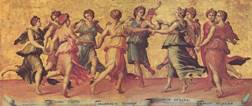






























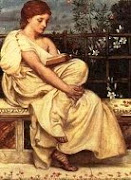

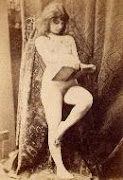










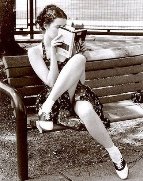





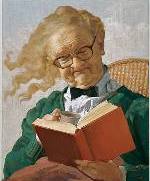






























No hay comentarios:
Publicar un comentario